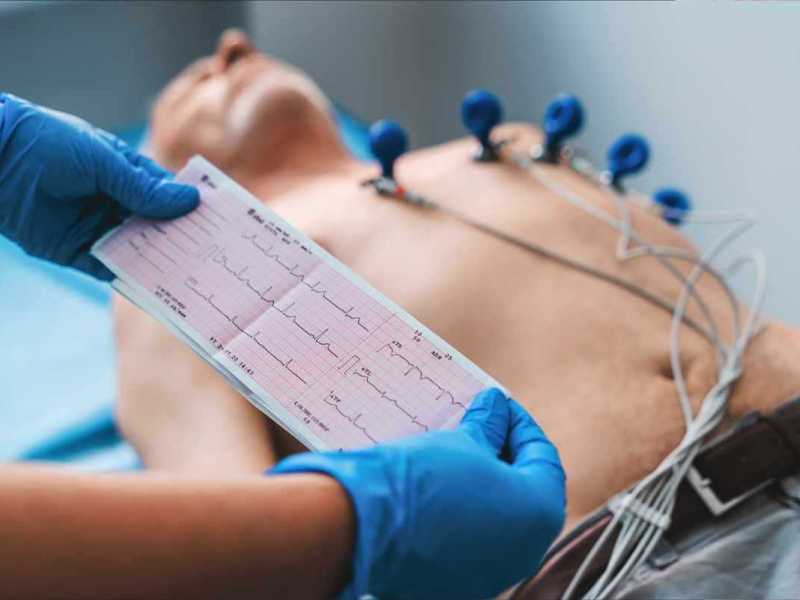
Your doctor may request an EKG (Electrocardiogram) if they examine your blood tests and deem it necessary. This test helps identify abnormal heart rhythms and blockages in the heart arteries. It can also provide information to the doctor about whether you have had a past heart attack. Small pads called electrodes, placed within adhesive patches, are positioned on your arms, legs, and chest. The device connected to these electrodes records the heart's contraction and relaxation phases, as well as the activities that occur during the heart's stimulation, onto paper.
However, the diagnostic accuracy of an EKG is only around 10-15%. If no issues are detected at this stage, and yet the doctor's suspicion persists, an exercise electrocardiogram (stress test or EKG) may be required.
Exercise Electrocardiography With this method, your EKG is taken while walking briskly on a treadmill. The speed of the treadmill gradually increases, and changes in your electrocardiogram are observed.
